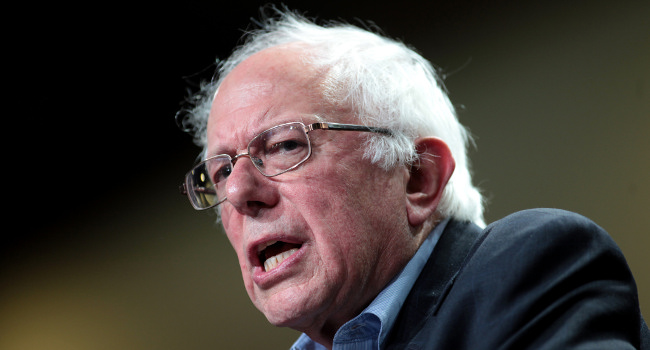Bernie Sanders, the insurgent Democratic presidential candidate who has eaten into support for Hillary Clinton, is noted for embracing the term “socialist”, a word long tainted by America’s ideological battle with Russian communism during the Cold War.
His adoption of the word was something that Bill Maher, the American comedian turned chat show host, sought to confront directly in an interview with Sanders last week.
Maher: “We have to teach Americans what [socialism] is. And I don’t know if we’re doing that yet. I don’t think most Americans realise they’re already socialists.”
Sanders: “In certain respects, okay.”
The prompt for Maher’s approach is not merely a feeling that socialists get a rough ride in American politics.
A Gallup poll from June this year revealed that half the country would refuse to back an otherwise qualified candidate in the presidential race if they were a socialist.
But what exactly is socialism? By Maher’s definition any programme that embraces elements of collectivism can be classified as socialist, juxtaposed against policies oriented towards individual ownership:
“Socialism is the programmes [Republicans] already like. They like social security – that’s socialism – they like Medicare, they like the VA [Department of Veterans Affairs, a military benefits scheme], they like the military. It’s already a socialist country!”
This may be putting it a bit strong, and Sanders dissented from the view, arguing that America was merely a country with some socialist programmes.
Indeed the senator for Vermont’s view aligns more with Wikipedia’s definition:
“Socialism is a social and economic system characterised by social ownership and control of the means of production and cooperative management of the economy, as well as a political theory and movement that aims at the establishment of such a system.
“‘Social ownership’ may refer to cooperative enterprises, common ownership, state ownership (achieved by nationalization), citizen ownership of equity, or any combination of these. There are many varieties of socialism and there is no single definition encapsulating all of them.”
By no stretch would this include America or many of the countries in Europe, whose leftwing elements have tended to allow capitalism to run whilst creaming off proceeds to fund the socialist programmes that Maher referred to, as well as the more conservative matters of justice and the military.
In terms of the amount of tax the American government collects it is also far less redistributive than many of its rich counterparts in other parts of the world.
Figures from the OECD, a rich countries club, showed that in 2010 only Mexico and Chile collected less tax as a percentage of gross domestic product, a measure of the economic value that a country creates.
Source: BlackRock
Sanders is right to point out the disparity between his country’s approach to healthcare when compared to other rich countries, which tend to have a right to treatment (though the actual system can vary a lot in practice), whilst Americans face more complex and chequered public provision.
America is also well behind most of the rest of the world in terms of maternity leave, though not so far behind when it comes to paternity leave, which is currently being pioneered by Scandinavian countries but is rarer.
In practice public support for socialist programmes can differ greatly from the support in a given country’s main political parties, as the senator from Vermont also argued, but as evinced by the Gallup poll quoted earlier, support for socialist programmes does not equate to support for socialism, at least in America.
Skilled politicians often speak in one fashion while acting in another, which acts a cover for the “tough decisions” lauded by conservatives and more leftish measures.
Sanders may be gaining points for authenticity, but he might have implemented more of his “socialist programmes” if he had not been so brazen in his choice of language.
Image Credit – Bernie Sanders, Arizona, July 2015 by Gage Skidmore

